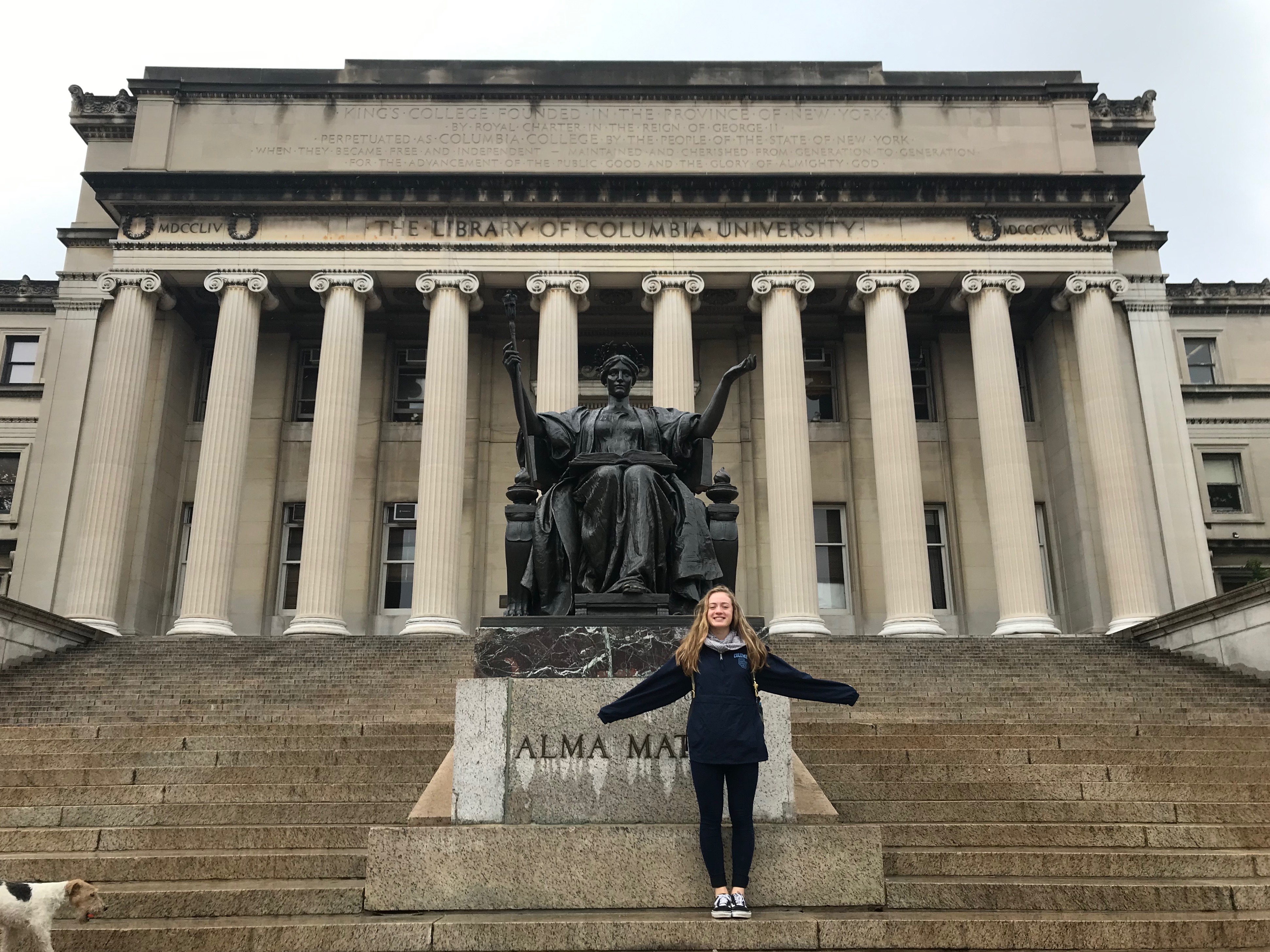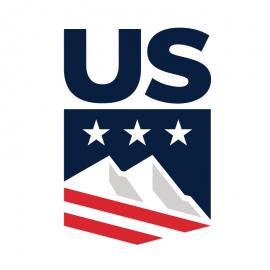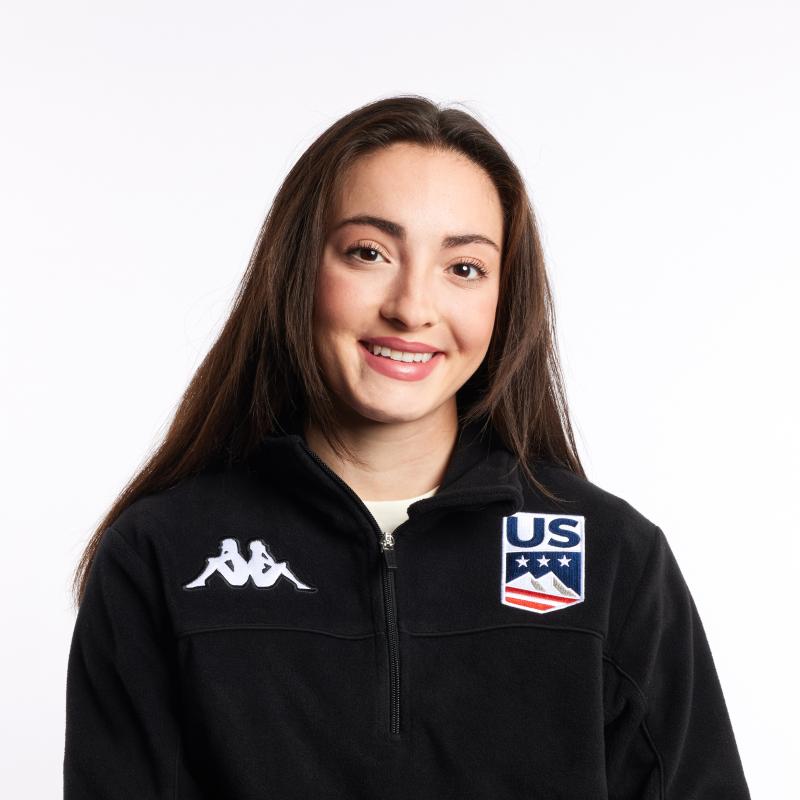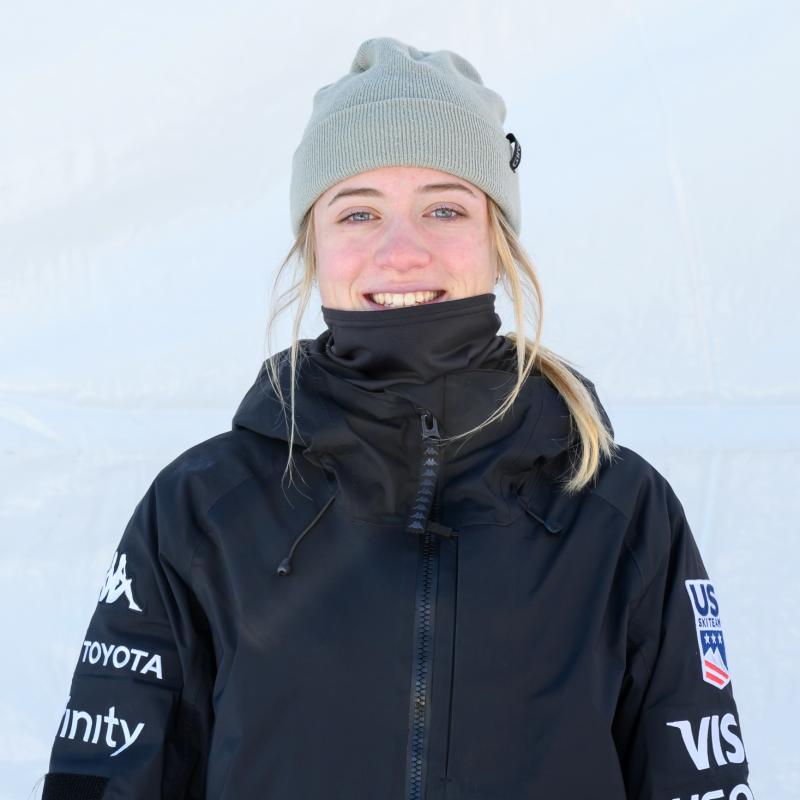U.S. Athletes Break a Mental Sweat

When the calendar turns from July to August, kids across America hope that time freezes and summer lasts forever - but school is just around the corner. For the athletes of U.S. Ski & Snowboard, there is no “summer vacation” and instead of preparing to return to school, they are gearing up for the next World Cup season. But being an elite athlete doesn’t mean giving up school, national team members just have to get more creative to complete high school and pursue higher education.
When rookie aerial skier Megan Smallhouse (Reno, Nev.) got serious about her training in her quest to make the U.S. Ski Team, she decided to attend all four years of high school online through North Star Online School.
“I was able to plan my workload so that when I was traveling for competitions, I could focus solely on competing."
– Megan Smallhouse, U.S. Freestyle Team
Balancing training, competing and school was no walk in the park. It required Megan to be strategically organized about her time, planning her week out in advance to make sure she had enough time for assignments outside of training. “School provided me with a healthy outlet outside of sports,” she reflected. “It allowed me to take my mind completely off skiing, and put my energy into something else. Striving for success in more than one area of my life provided a healthy balance for me.”
Moguls skier Olivia Giacco (Redding, Conn.) echoes Smallhouse’s sentiments. Giaccio used last season as a gap year between high school and college to focus completely on skiing. “It was great to focus on skiing last year but it is good to have another outlet during the season,” she says. “I’ve found having something to put my mental energy into besides skiing when I’m off the hill to be helpful.”
Giaccio has already been accepted to Columbia University and plans to attend full time when she hangs up her moguls skis. Wanting a taste of what college would be like, she attended a creative writing program through New York University during the month of June, living the dorm life. Although away from the team, Giaccio didn’t stop training. Staying in close contact with her coaches, she was able to follow her workout and nutrition program.
Through the immersive program, Giaccio earned eight credits and explored an area of study close to her heart. “I have always been interested in writing since I was little,” she said. “I love to tell stories. I started my blog which details my training, competitions and feelings and reflections of it all. I have run that since made the U.S. team, going on four years now. I’m not sure what I want to study once I attend school full time, probably something humanities-based, but writing is definitely an avenue I want to explore.”
Moguls teammate Jesse Andringa (Boulder, Colo.) took advantage of spring offerings as well with May-mester through the University of Colorado Boulder. “May-mester worked well because it’s one course for three weeks, three hours a day every day, on campus,” he explains. “I didn’t have much training going on at that time, no ramping or skiing scheduled. And I did my workouts at CU.”
Andringa is pursuing a degree in engineering. While he has limited options for online engineering courses, he is currently a sophomore because he’s completed his general requirements already, and takes engineering courses as time permits during the offseason. “Engineering excites me,” he says. “I want to have a degree in that hopefully within a year or two after I retire. I’m trying to get into renewable energy and give back to the skiing world by helping the environment.”
Moguls team athlete Hannah Soar (Somers, Conn.) was able to juggle three college courses and a skiing schedule while attending Union College for the spring trimester. “It was nice to go in class to get the full college experience,” she said. “I moved into a dorm, had a roommate from Bombay. It was cool to meet other people, and my professors were really great. It was nice to dig deeper into the classes being there in person.”
If three courses weren’t enough, Soar packed in a full training load as well. “I followed my workout regimen at night after my classes: lifting Mondays, Wednesdays, and Fridays, and Tuesdays and Thursdays I did a HIIT and Abs class at school,” Soar said. “On weekends I would ski. My Econ class ended at 10:30 a.m. on Fridays, and then I would drive two hours to Killington and ski 1 to 5 p.m. I skied Saturday and Sunday, and then drove back to school Sunday night. It was busy but super fun.”
Juggling school and skiing are more difficult while on the road, and many athletes opt to take an online course during the World Cup season to give their brains a break from skiing. Andringa recalls being in Kazakhstan and not having service to complete an assignment. “I had to email my professor - I barely got the email out - saying ‘Hey I can’t do my work this week. I’m in Kazakhstan but flying back Sunday,” he said. “I can submit by Tuesday.’ He was pretty good about it as long as I kept him in the loop.”
For the elite snowsports athlete, the road to education is not as straightforward as peers in their age group experience. However, The U.S. Ski & Snowboard Athlete Career and Education (ACE) department are committed to creating “whole person development” as ACE Director Julie Glusker likes to say. “Whole athlete development serves to enhance an athlete’s athletic performance, to inspire their education and career achievement, to increase their sport longevity, and to encourage enduring association for them with U.S. Ski & Snowboard,” Glusker explains.
Freeskier Julia Krass (Hanover, N.H.), a junior a Dartmouth, enjoys the balance between attending fall and spring trimesters and competing in the winter. “I feel very lucky to be able to do both and I think that going to school benefits my skiing because when I do get the opportunities to ski, I am fired up and work very hard since I know that time is sometimes limited.”
Pursuing an education has given Krass a deeper appreciation for her ability to ski competitively. “Growing up, I've always thought it was very important to have a balance between my ski career and my personal life, which consists of my education as well as other activities that I enjoy. This is important to me because as much as I love skiing, I do know that I won't be able to do it forever, and with all the injuries you don't really know when your career could be done. I know that I will always have my education to go back to once I am done with skiing and I'm excited about the opportunities that will come from that.”
Glusker estimates about two-thirds of the 176 national team members are working to complete high school or college courses. Through services such as academic advising and planning, college application support, exam proctoring and tuition reimbursement, ACE strives to make it as easy as possible to pursue education while pursuing athletic excellence.
A major draw for national team members pursuing college courses is ACE’s tuition reimbursement program. The Marolt Athlete Endowment program is funded by the Borgen-Swartz, Eccles Fund and the Davis Family Fund. Athletes may receive up to $6,000 in reimbursement for college tuition twice annually. They can apply in late fall and early spring and are reimbursed for tuition, required registration fees, and books. This past year 60 athletes took advantage of the program and 43 athletes are currently awaiting their reimbursement from this past June cycle.
“Going to school is important because it broadens your mind and how you look at the world,” said Soar. “I know they always say critical thinking is what’s taught in college, but it really is. I think it ties in really well with skiing - you can just look at things with a different perspective and makes you appreciate it more. I really enjoyed going to school for 10 weeks and making new friends but I was extremely excited to get back to training once I was done with my last final.”


